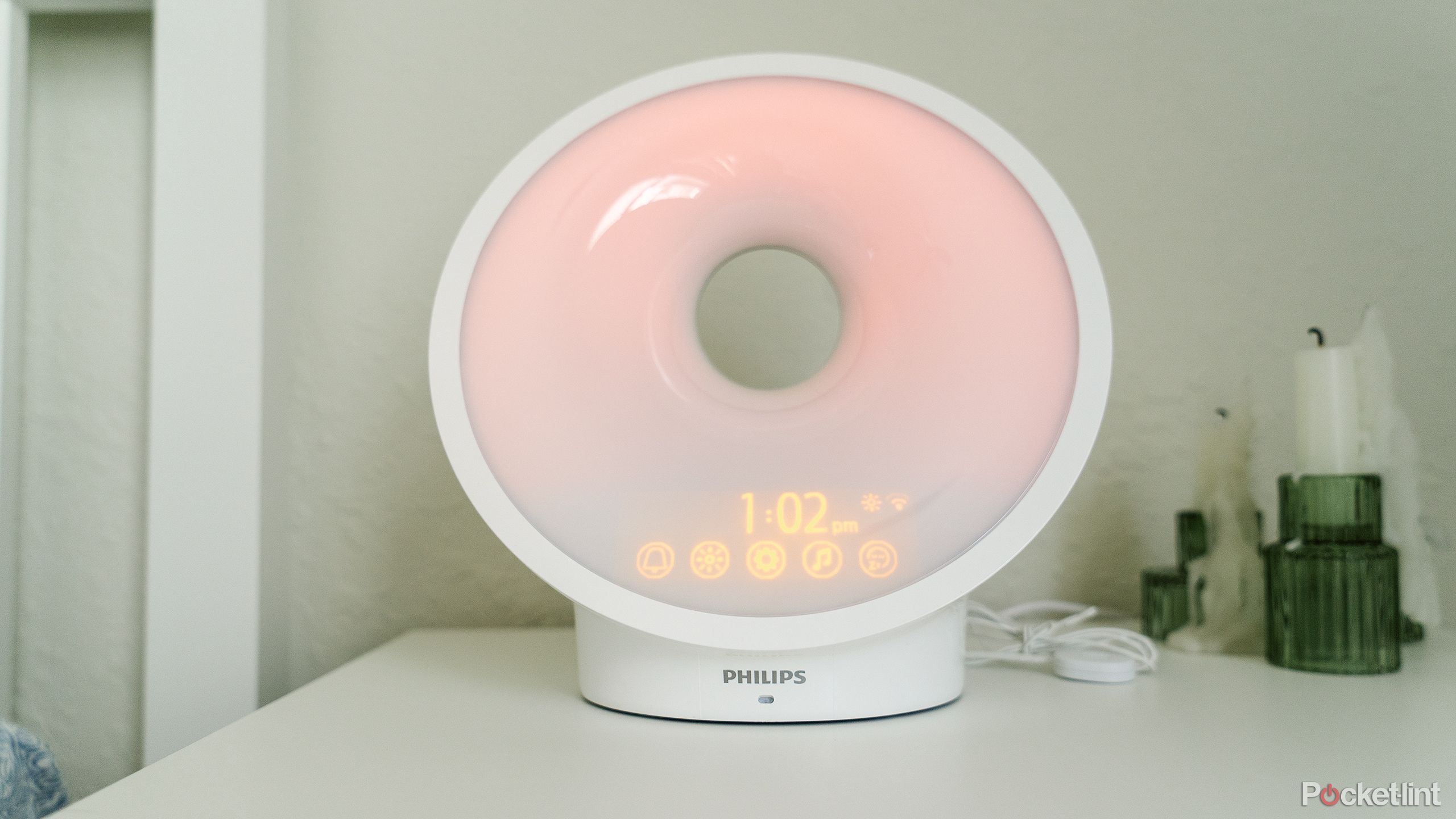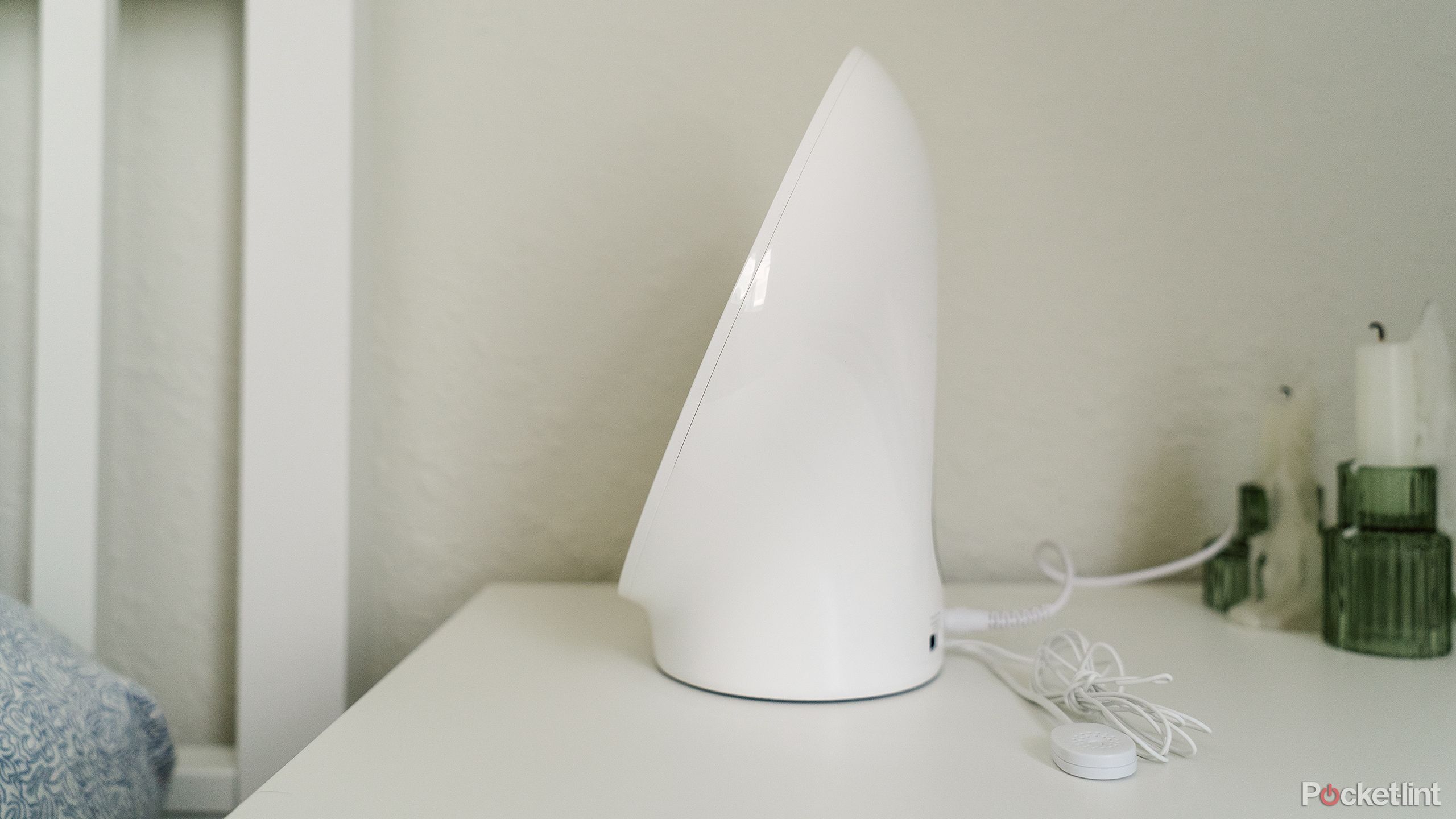Key Takeaways
- The Philips SmartSleep HF3670/60 is a multifunctional device for sleep and wake-up with light and sound tools.
- This smart light offers customizable alarms and sunset and relaxation features for winding down.
- The sleep tracking feature is basic and lacks biometric data integration with other platforms, suggesting alternative devices or solutions might be more cost-effective.
Light is one of the most important factors in driving our circadian rhythm; it has a drastic impact on how we fall asleep and wake up. Too much light (especially blue light) at night can prevent you from falling or staying asleep, and too little light in the morning makes it challenging to wake up. As we come to more fully understand the importance of light, more products are coming out to aid in both winding down and waking up.
One such product is the Philips SmartSleep Sleep and Wake-Up Light HF3650/60. It’s a multifunctional device with light and sound tools for falling asleep and waking up. Its built-in sensors measure your bedroom’s temperature, noise, light, and humidity levels. That information is tracked in the SleepMapper app so you can spot trends and see what might be impacting your sleep. I’ve been using the light for a month and admittedly have mixed feelings about this fairly unique device.
Helpful but expensive
Philips SmartSleep Connected Sleep and Wake-Up Light HF3670/60
The Philips SmartSleep Connected Sleep and Wake-Up Light HF3650/60 is a light, noise machine, sleep tracker, and radio all in one. It provides a gentle means of waking up in the morning and tools for winding down at night as well. Plus, its sensors read ambient light conditions, humidity, and noise levels in your bedroom to help you get a better idea of the conditions while you sleep.
- Dimensions
- 8.8 x 8.6 x 4.7 in
- Power Source
- 18W power adapter
- Batteries required?
- No
- Multiple sound options
- Sunset mode is a nice way to wind down at night
- Much more gentle for waking up than a traditional alarm
- Alarms are very customizable
- Bulky
- Expensive
- Introduces lots of cords
- Not ideal if you share a room and wake at different times
- Doesn’t connect to any other apps or platforms
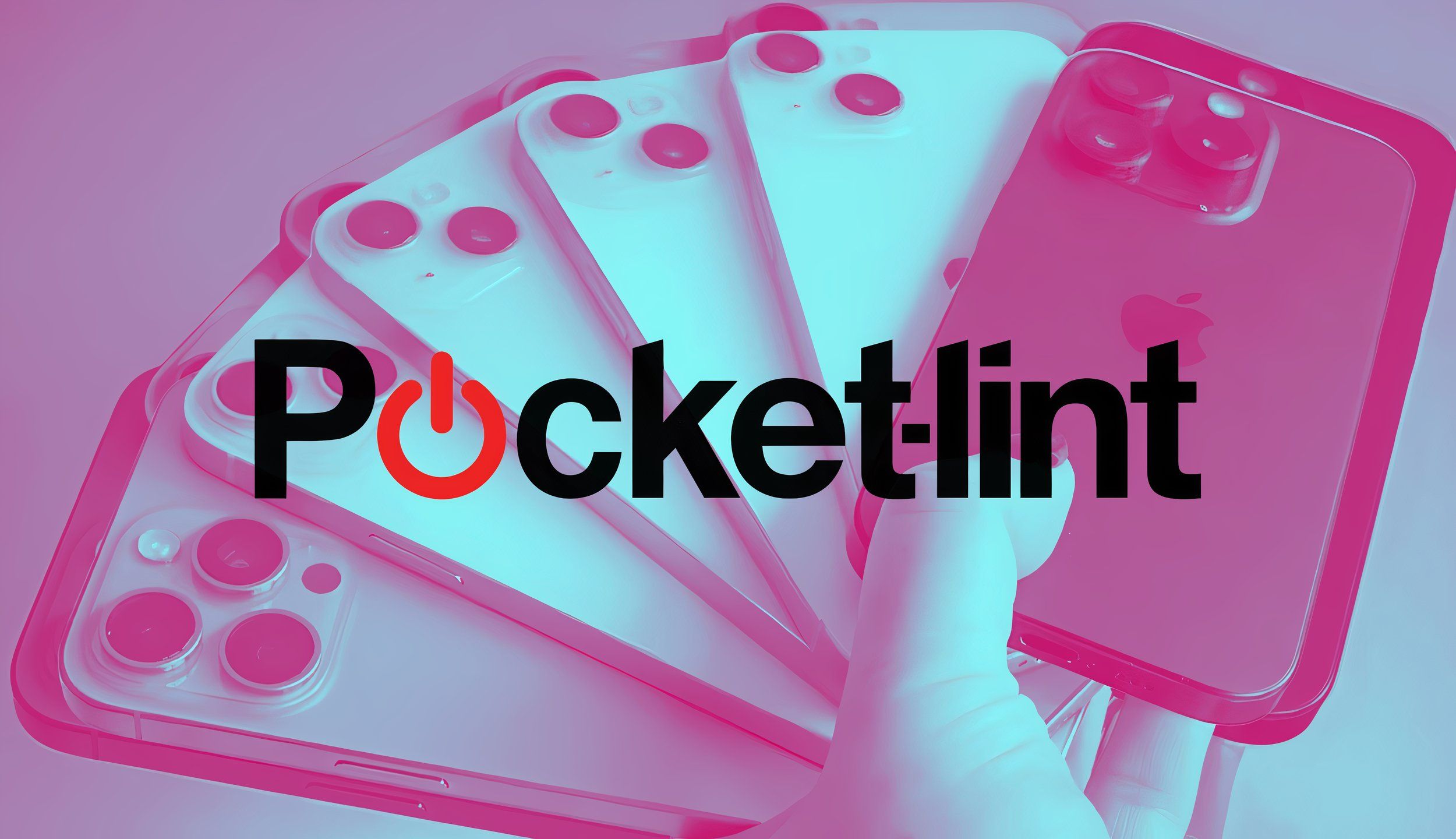
See our process
How we test and review products at Pocket-lint
We don’t do arm-chair research. We buy and test our own products, and we only publish buyer’s guides with products we’ve actually reviewed.
Price, availability, and specs
The Philips SmartSleep Sleep and Wake-Up Light HF3670/60 is available from the Philips website for $220.
Philips SmartSleep Connected Sleep and Wake-Up Light HF3670/60
- Dimensions
- 8.8 x 8.6 x 4.7 in
- Power Source
- 18W power adapter
- Batteries required?
- No
What I liked about the Philips SmartSleep HF3670/60
A gentle and soothing way to fall asleep and wake up
I was surprised at how much I liked waking up with the SmartSleep. The light and forest sounds did a great job of gradually waking me up instead of a jarring wake-up call from an alarm. My bedroom only has one window and doesn’t get much sun in the morning, and in line with studies on the topic, the light first thing after waking up makes me feel more alert right away.
The alarms are very customizable with the SleepMapper app. You can choose a Sun Theme, with four different light colors to choose from. You can also set the light intensity and the light duration, which I especially appreciate. The first time I used it, I had the duration set to 30 minutes and the alarm time when I actually wanted to get up. I ended up waking up about 20 minutes before my alarm technically went off as a result.
You can also customize the sound that wakes you up with options like Forest Birds, Summer Birds, Buddha Wakeup, Yoga Harmony, and more. Or you can choose an FM radio station to wake you up. Then, as with other alarms, you can set a snooze duration and whether it repeats on certain days of the week. Should you be worried you won’t wake up, you can set the PowerWake tool, which plays a loud sound and bright flashing light. It kind of defeats the purpose of the slow, calm wake-up, though. It is really jarring (okay, terrifying).
I found it to be really soothing as I wound down reading in bed, and it seemed to help me fall asleep a bit easier on the nights I used it.
While I liked the alarm function, the Sunset feature was my favorite aspect of this light. Like the alarms, you can choose the duration, sunset color scheme, and pick an ambient sound, though with fewer options than the alarm. Then, after you manually turn it on (there’s no way to schedule it), the light gradually fades while it plays ambient sounds. I found it to be really soothing as I wound down reading in bed, and it seemed to help me fall asleep a bit easier on the nights I used it.
What I didn’t like about the Philips SmartSleep HF3670/60
Only ideal for those who sleep alone
While the SmartSleep did wake me up nicely, I’m really limited on when I can actually use the alarms. I wake up a few hours earlier than my husband most days and don’t want to blast him with light and bird noises before he needs to wake up. As a result, the only time I can use the alarm is on days when we will be waking up at the same time or if he is out of town. While I can use the sunset function when he’s around, that’s pretty limited use for a gadget that costs $220.
The HF3670 model also features an AmbiTrack sensor, which measures temperature, noise, light, and humidity levels. I don’t have measurement tools to accurately verify the information it’s gathering, but the temperature is always significantly off from what our thermostat is set to (both high and low). It also almost always tells me the sound level is too high, even though I’ve thought our apartment is quiet overall.
While the information is interesting, it’s hard to do much to impact those numbers for most people. Short of sleeping with earplugs, most aren’t able to change the ambient noise levels of their home, and adding a dehumidifier to reduce humidity levels would then raise noise levels. Philips also makes a model of this light (the HF3650) without the sensor that’s $40 cheaper, which likely makes more sense for most people.
You can track your sleep with this light by tapping the top to turn tracking on. It automatically ends with an alarm, or you can turn it off in the app. While this is nice, in theory, all you are recording is the amount of time you were in bed. It doesn’t collect any biometric data like a watch or smartring would and doesn’t sync to any other apps or platforms. I have a hard time seeing how this information is even remotely useful.
My final frustration with the SmartSleep light is that it takes up a lot of room on my nightstand. I tend to like pretty minimal decor in the bedroom, and this is not that. The design isn’t bad, but it definitely sticks out both in terms of looks and space. Plus, between the radio antenna, AmbiTrack sensor, and USB cable for charging my phone, it introduces a lot of cables, the bane of my existence.
Between the radio antenna, AmbiTrack sensor, and USB cable for charging my phone, it introduces a lot of cables, the bane of my existence.
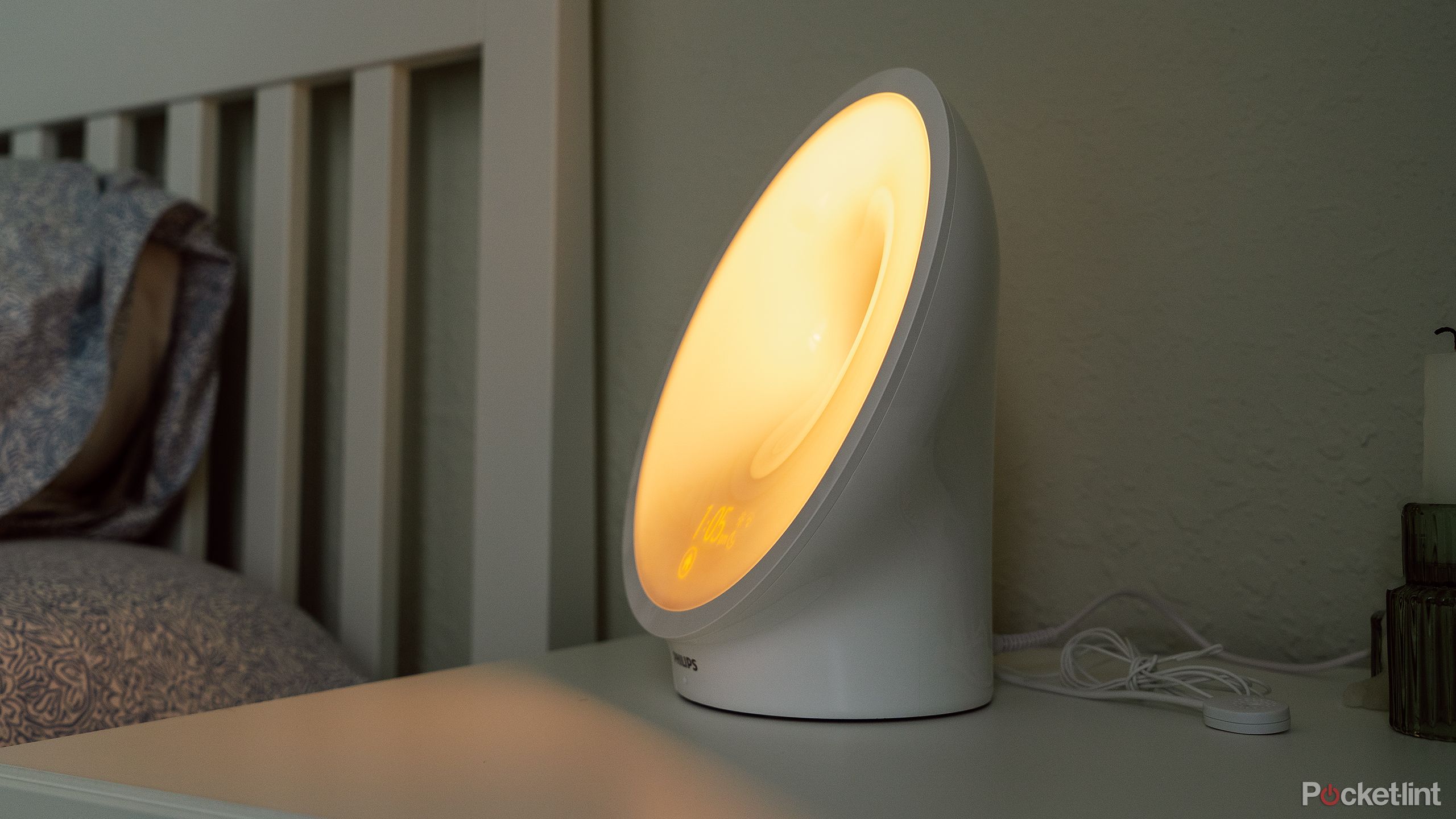 Should you buy the Philips SmartSleep HF3670/60?
Should you buy the Philips SmartSleep HF3670/60?
The Philips SmartSleep HF3670 is a product that I would hesitate to recommend to most people. I fully understand the importance of light in the morning (one of the perks of being married to a physiologist with sleep science friends), but the SmartSleep HF3670 has such a narrow use case, and when paired with its high price, for most, it simply won’t be a good buy.
That said, if you sleep alone or have a partner who wakes up at the same time (or isn’t bothered by light and noise), then you might fit into that niche that this light serves. Alternatively, I could see this light as being very beneficial for children, but the price is still a sticking point.
The half-hearted attempt at sleep tracking is also a letdown here, though that’s simply a limitation of this type of device. If Philips were to add some integrations with other platforms like Oura, Garmin, or any other wearable that gathers biometric sleep data, I could see the value a bit more. But as is, you might be better off buying a smart plug that can schedule a lamp to turn on and a sound machine for cheaper than what you’d spend on this.
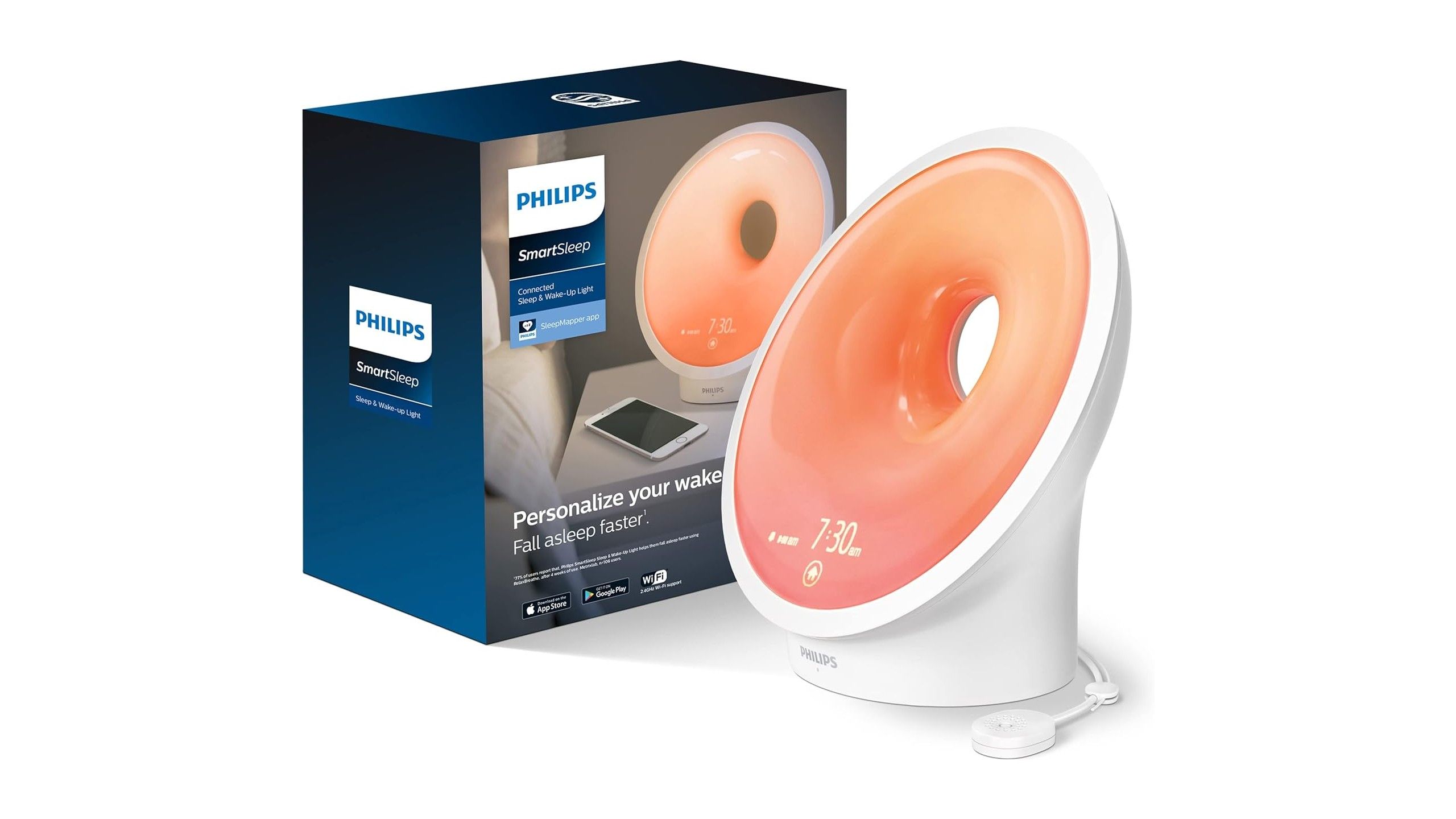
Philips SmartSleep Connected Sleep and Wake-Up Light
- Dimensions
- 8.8 x 8.6 x 4.7 in
- Power Source
- 18W power adapter
- Batteries required?
- No
Trending Products

